Events
| Name | organizer | Where |
|---|---|---|
| MBCC “Doing Business with Mongolia seminar and Christmas Receptiom” Dec 10. 2025 London UK | MBCCI | London UK Goodman LLC |
NEWS

The First National Shearing and Woolhandling Championships Hosted with Over 100 Participants www.montsame.mn
Under the auspices of President of Mongolia Khurelsukh Ukhnaa, the “Altan Khaich 2025” (Golden Shears 2025), the first-ever National Shearing and Woolhandling Championships of Mongolia took place on June 20-21, 2025, in Zuunmod, Tuv aimag.
The competition, organized by the Ministry of Food, Agriculture, and Light Industry (MOFALI) and the Governor’s Office of Tuv Aimag within the framework of the “Tsagaan Alt” (“White Gold”) National Movement, aims to increase the value of sheep wool, improve its efficient use, and support the production of wool final goods. Furthermore, it targets to facilitate herders’ workload by introducing and promoting time-efficient technologies and equipment and rewarding youth who have acquired the skills to use them.
The “Altan Khaich 2025” competition was organized within three categories: traditional hand shearing, beginner-level electric shearing, and professional electric shearing. The judges consisted of one Australian and seven New Zealand professionals, as well as herders, scholars, and researchers.
Originated in 1961 in New Zealand, the “Golden Shears” competition has become a tradition hosted in locally tailored ways by fifteen countries worldwide. The competition, organized for the first time in Mongolia, also featured a wool and cashmere product exhibition, a fashion show, competitions of knuckle-bone shooting and wool plying, and a song contest among sheep shearers.
Over a hundred sheep shearers aged between 19 and 70 from 18 aimags participated in the competition. Champion Herder of Mongolia from Darvi soum, Gobi-Altai aimag Batmagnai Shagdarsuren won first place in the hand shearing category, scoring 981.8. As for the amateur electric shearing category, Herder from Tsenkher soum, Arkhangai aimag Azbayar Chuluunbat secured first place, shearing five sheep in 8 minutes and 14 seconds. The winner in the professional electric shearing category is Herder from Khotont soum, Arkhangai aimag Baasandorj Erdenetsogt, who sheared 10 sheep in 10 minutes and 52 seconds.
Herder Baasandorj Erdenetsogt set a national record of shearing 455 sheep in 8 hours. In recognition of his achievement, President of Mongolia Khurelsukh Ukhnaa awarded him a certificate of acknowledgment, confirming his participation in the 2026 Shearing and Woolhandling Championships.
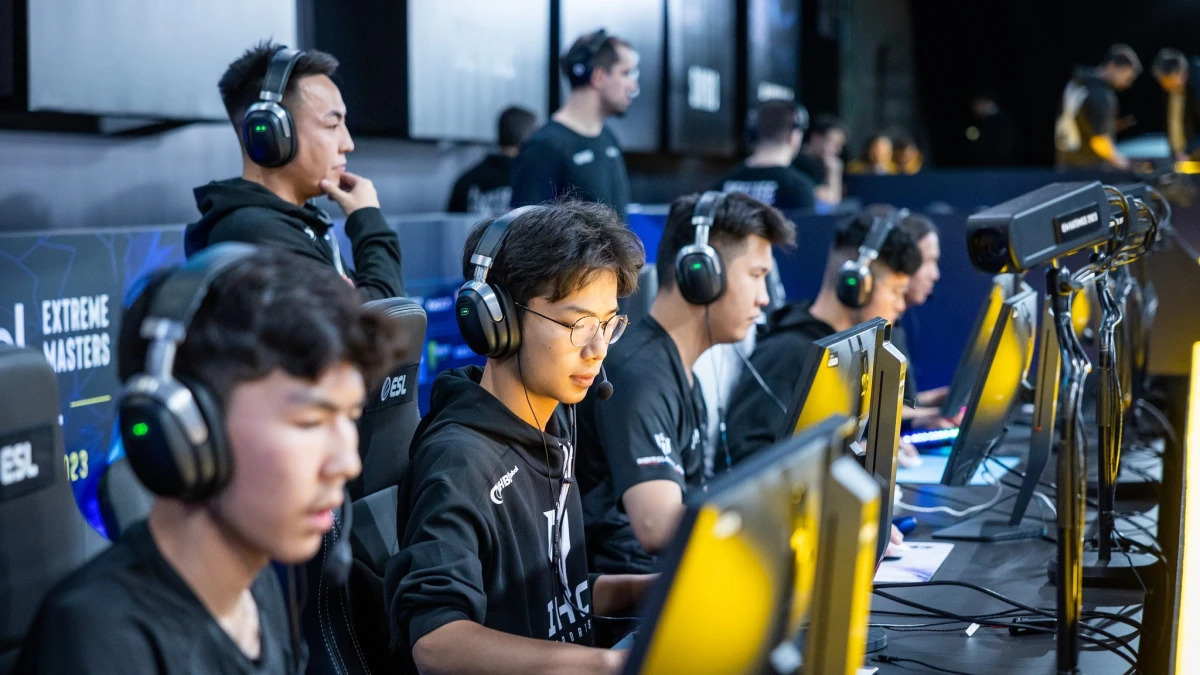
Mongolian Team “Alpha Gaming” Wins the PUBG Mobile Super League – Central & South Asia Spring 2025 www.montsame.mn
Mongolia’s team “Alpha Gaming” has won first place in the PUBG Mobile Super League – Central & South Asia Spring 2025 tournament, held in Almaty, Kazakhstan.
The tournament, which took place from June 12 to 22, 2025, brought together a total of 20 teams from Mongolia, the Russian Federation, the Republic of Pakistan, the Republic of Kazakhstan, the Republic of Uzbekistan, the Federal Democratic Republic of Nepal, and the People’s Republic of Bangladesh. Two teams, namely “Alpha Gaming” and “Champions Esports”, competed from Mongolia.
As a result of scoring 170 points over eighteen games in three days, Mongolia’s team “Alpha Gaming” won the gold medal and the Cup, along with a prize of USD 36,300. Additionally, member of “Alpha Gaming” Burenbayar Altangerel became Finals Most Valuable Player (MVP). The team had previously won 4th place in the PUBG Mobile Global Championship 2023 under the name “4Merical Vibes”, but changed their name to “Alpha Gaming” last spring. They won the Super Leagues last spring and autumn.
As for the team “Champions Esports”, they ranked 12th with 93 points and were awarded a prize of USD 7,750.
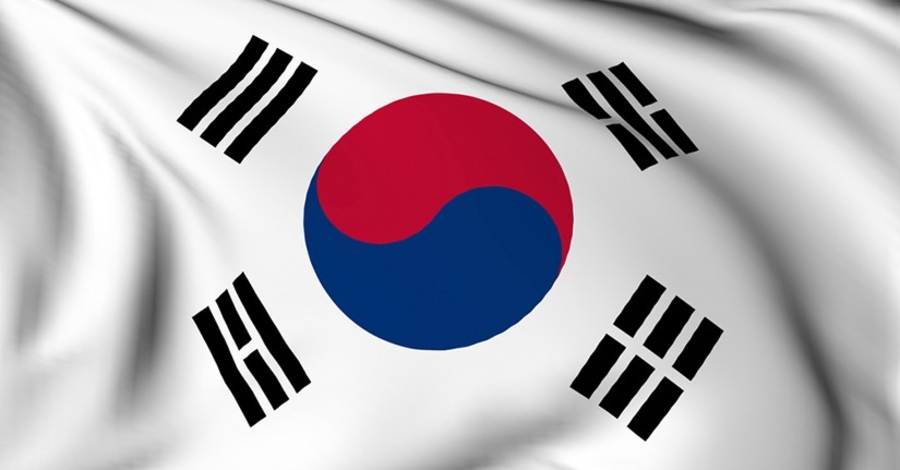
Mongolia’s parliamentary speaker highlights strengthening strategic ties with Korea www.koreatimes.co.kr
Korea and Mongolia are marking 35 years of diplomatic relations with renewed efforts to deepen their strategic partnership across economic, technological and cultural fronts, according to Dashzegve Amarbayasgalan, Chairman of the State Great Khural, or Parliament, of Mongolia.
In a written interview with The Korea Times, Amarbayasgalan described the current relationship as having been “elevated to the level of a strategic partnership,” emphasizing shared democratic values and common regional interests. “Over the past 35 years, relations and cooperation between our two countries have expanded across all sectors of society and the economy,” he said.
Amarbayasgalan emphasized that the bilateral relationship, which stems from Mongolia’s “Third Neighbor” policy, is rooted in shared values such as democracy, human rights and the principles of a market economy. “Mongolia deeply appreciates the consistent support provided by Korea during our democratic and economic transition,” he said.
In terms of economy, Amarbayasgalan highlighted the significant potential of mining and supply chains, stating that “Mongolia’s mineral wealth, when combined with Korea’s advanced technology and expertise, offers substantial opportunities for cooperation.”
He referenced the 2023 memorandum on rare metals and the establishment of a joint research center for rare metals as a cornerstone of future Korea-Mongolia collaboration. The project involves establishing four laboratories for research and processing, adding that it will “lay a strong foundation for expanding future cooperation in this field.”
He also mentioned significant infrastructure projects, such as the Solongo 1 and 2 apartment developments and the construction of thermal power plants in 10 provincial centers. “Both sides are working closely to ensure the successful and effective implementation of these projects and programs,” he added.
He said that Mongolia is also working to diversify its economy beyond mining and welcomes Korean support and investment in its agricultural and processing industries under improved preferential tax conditions.
The speaker described the visit of former National Assembly Speaker Kim Jin-pyo to Mongolia in 2023 as “friendly and cordial.”
It was the first visit by a Korean parliamentary leader in 12 years. Discussions reinforced support for bilateral trade and investment. “We agreed to focus parliamentary support for increasing trade and investment between our two countries,” he said.
People-to-people ties were also a key focus of the talks. “Since 2022, the Mongolian government has exempted Korean tourists from visa requirements. Consequently, 193,000 Korean nationals visited Mongolia last year,” he said, citing the country's growing popularity among Korean tourists, who are attracted by its natural beauty, peaceful countryside, blue skies and wide-open steppes.
Amarbayasgalan confirmed that negotiations for an Economic Partnership Agreement between the two countries are well underway, with four rounds having been completed thus far. “This agreement … holds significant importance for expanding trade, services and economic cooperation,” he said. “It will establish a legal framework for collaboration between private businesses and entrepreneurs.”
Mongolian night sky / Korea Times file
Mongolian night sky / Korea Times file
He also acknowledged Korea’s long-standing support in the form of grant aid and concessional loans, which have played a crucial role in Mongolia’s transition to a democratic and market-based economy.
“Between 1991 and 2023, Korea provided $237.7 million in nonrefundable aid,” he said, citing major initiatives such as the Greenbelt program and urban development projects in Ulaanbaatar.
Looking ahead, Mongolia envisages a strategic partnership with Korea in the areas of green energy and digital governance. “There is great potential for cooperation in areas such as wind and solar energy, smart grid development and the introduction of energy storage systems,” said Amarbayasgalan.
He referred to the Memorandum of Understanding on e-governance signed in 2023 by Mongolia’s Cabinet Secretariat and Korea’s Ministry of the Interior and Safety. “The two parties are sharing knowledge and enhancing their human resources capacity in areas such as the digitalization of public services, open data, data security and the use of artificial intelligence in public administration,” he said.
Tourism and cultural exchange are also experiencing rapid growth. “More than 350,000 people traveled between the two countries last year alone,” Amarbayasgalan said. “At the peak of the tourism season, over 100 direct flights operate weekly between Mongolia and Korea.” Plans are in place to increase air connectivity, develop new tour packages and introduce youth exchange programs, including internships.
Cultural initiatives include “Mongolia-Korea Cultural Month,” joint exhibitions, film festivals and artistic performances, all of which are intended to foster deeper understanding between the two peoples. “The friendly relationship between our peoples, along with the linguistic and cultural similarities between our two nations, provide a solid foundation for the continued expansion of bilateral relations and cooperation,” he said.
Regarding regional diplomacy, Amarbayasgalan reaffirmed Mongolia’s commitment to peace on the Korean Peninsula and in the wider Northeast Asian region. “Mongolia supports peace and prosperity … and the resolution of disputes through peaceful dialogue,” he said. He noted that Mongolia has hosted the “Ulaanbaatar Dialogue on Northeast Asian Security” every year since 2013, with preparations underway for the session in June.
In his closing message, Amarbayasgalan conveyed his heartfelt thanks to the people and leaders of Korea.
“The strategic partnership between Mongolia and Korea is founded on the principles of democracy, an open society and shared development,” he said. “Our partnership ... contributes to regional stability and peace.” He also reaffirmed Mongolia’s commitment to further strengthening this trust-based relationship in the years to come.
BY
Kim Hyun-bin began his journalism career at Arirang TV from 2012 to 2017, specializing in defense, foreign affairs and the economy. In 2018, he joined The Korea Times, covering society and business, and is currently responsible for embassy affairs.
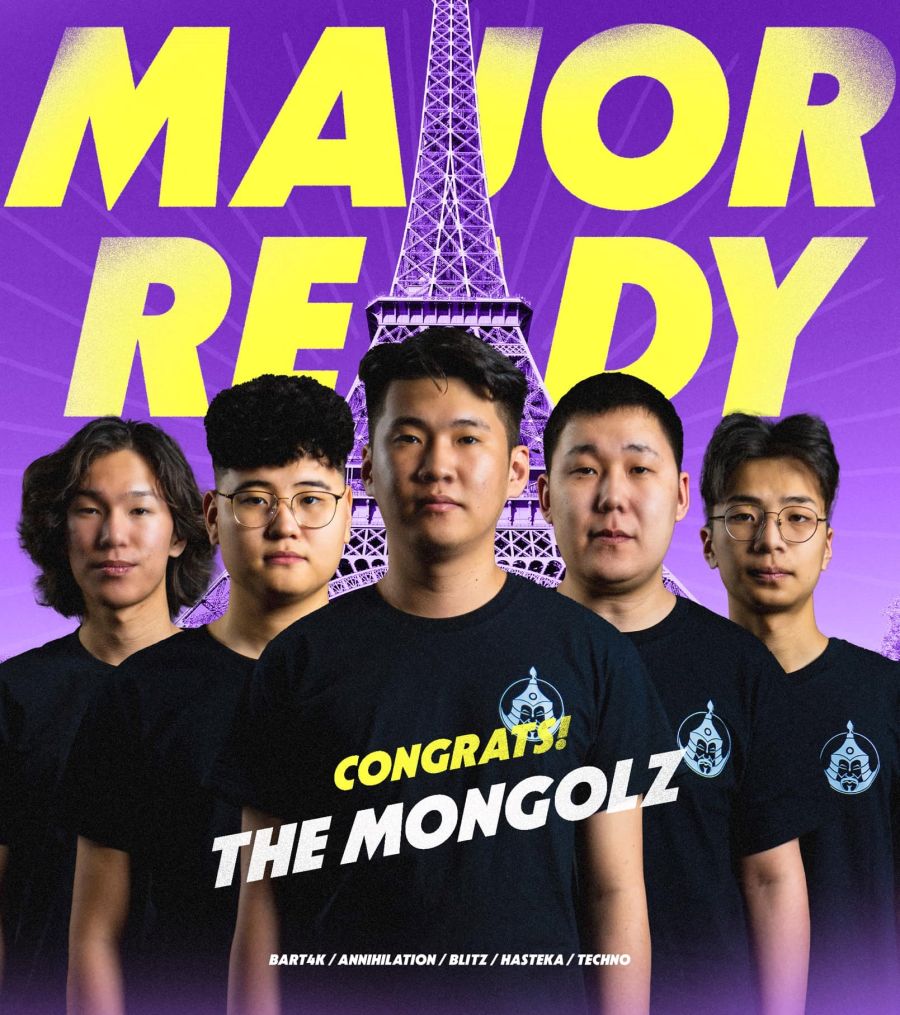
“MongolZ” Makes History: The First Asian Team to Win 2nd Place in World Counter-Strike Championship www.montsame.mn
Mongolian National Team, “The MongolZ,” won second place in the Counter-Strike 2 (CS2) world championship, held in Austin, USA, marking a monumental achievement in esports history not only for Mongolia but also Asia.
The tournament, which began on June 3, 2025, brought together five Asian, sixteen European, and eleven American teams. Two out of the six Asian teams were from Mongolia. The other team from Mongolia, “Chinggis Warriors,” concluded their competition by losing against the Chinese team, taking 28th to 30th place.
“The MongolZ” was the only team from Asia to advance into the quarter-finals, securing their right to compete in the single-elimination bracket. After defeating the team “FaZe Clan”, then the Brazilian National Team “paiN Gaming” in the semi-finals, “The Mongolz” qualified for the finals. They were to face the world’s leading team from the French Republic, “Team Vitality”, who had lost only 2 out of 39 games and had won 6 out of their last 7 tournaments. The final game of “The MongolZ”, highly anticipated by the team’s loyal fans as well as all of Mongolia, began at 03:30 AM, June 23, 2025.
Youth all across Mongolia gathered at Sukhbaatar Square, “Steppe Arena”, the amphitheater at the National Amusement Park, the Ard Ayush Square in Khovd aimag, and the football field in Darkhan-Uul aimag to watch and support the national team. “The MongolZ” lost the game with a score of 1:2. Although the first round was won by “The MongolZ” at 13:5, the French National Team won the second and third rounds at 4:13 and 6:13 respectively, becoming the champions of the biennial World Cup.
The Mongolian National Team “MongolZ” made history with a silver medal, as they became the first team from Asia to advance to the finals and set a record of injuring an opposing player 36 times in a single match. Team “The MongolZ” became the youngest roster to qualify for the final stage of the tournament, with an average age of 20.8. Moreover, “The MongolZ” set another record for playing the highest number of rounds in one match – 53 rounds. In the 20-year history of the game “Counter-Strike”, no other Asian team has ever achieved the level of success accomplished by “The MongolZ”. Despite falling short in the final, the Mongolian team left a lasting mark on the global esports stage.
The winner of the championship, with a total prize pool of USD 1,250,000, won a prize of USD 500,000, whereas the runner-up team “The MongolZ” won a prize of USD 170,000. The third and fourth places were awarded USD 80,000.
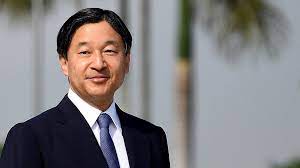
His Majesty the Emperor Naruhito and Her Majesty the Empress Masako of Japan will pay State Visit to Mongolia www.gogo.mn
At the invitation of Ukhnaa Khurelsukh, the President of Mongolia, His Majesty the 126th Emperor Naruhito and Her Majesty the Empress Masako of Japan will pay a State visit to Mongolia on July 06-13, 2025.
This marks the first state visit to Mongolia by Emperor Naruhito and Empress Masako.
During the visit, President U.Khurelsukh and Emperor Naruhito will hold an official meeting to discuss ways to further deepen the friendly relations and cooperation between the two nations and peoples.
Their Majesties will also attend the opening ceremony of the National Naadam Festival and participate in other official events as guests of honor.
This visit holds historical significance and will play a key role in strengthening the “Special Strategic Partnership for Peace and Prosperity” between Mongolia and Japan, two nations that share common democratic values. It will also contribute to deepening "people-centered" ties and cooperation across various sectors.
Notably, Emperor Naruhito previously visited Mongolia in 2007 in his capacity as Crown Prince, on the occasion of the 35th anniversary of the establishment of diplomatic relations between the two countries.

2025 FIBA 3x3 World Cup to Be Held on Sukhbaatar Square www.montsame.mn
Mongolia will host the 2025 FIBA 3x3 World Cup on June 23-29, 2025, in Sukhbaatar Square, Ulaanbaatar City. The Governor’s Office of the Capital City of Ulaanbaatar, the International Basketball Federation (FIBA), and the Mongolian 3x3 Basketball Association are jointly organizing the World Cup.
A total of 40 men’s and women’s teams from 27 countries, including the best teams from Mongolia, the United States of America, the French Republic, the Republic of Serbia, the Republic of Lithuania, and the People’s Republic of China, will participate in the tournament. Alongside the tournament, entertainment shows and performances, a sports equipment exhibition, as well as a national and international food festival will take place.
Mongolia becomes one of the first Asian countries to host the FIBA 3x3 World Cup. The competition is significant as it will promote the development of 3x3 basketball in Mongolia, motivate national young athletes, and boost sports tourism.
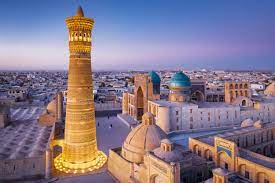
President of the Republic of Uzbekistan to Pay a State Visit to Mongolia www.montsame.mn
At the invitation of the President of Mongolia, Khurelsukh Ukhnaa, President of the Republic of Uzbekistan Shavkat Mirziyoyev will pay a State Visit to Mongolia on June 24-25, 2025.
This visit is the first State Visit by the Head of Uzbekistan since Mongolia and Uzbekistan established diplomatic relations in 1992 and it is a reciprocal visit following the State Visit of the President of Mongolia Khurelsukh Ukhnaa to Uzbekistan in 2024.
During the State Visit, President of Mongolia Khurelsukh Ukhnaa and President of the Republic of Uzbekistan Shavkat Mirziyoyev will hold official talks and exchange views on expanding and developing friendly relations and cooperation between the two countries, as well as cooperation in the region and international arenas.
Mongolia and the Republic of Uzbekistan established diplomatic relations on January 25, 1992.

First cargo shipment via Uzbekistan– Kyrgyzstan–China–Mongolia corridor completed www.qazinform.com
On June 20 this year, as part of efforts to expand the export geography of domestically produced goods and strengthen international transport and logistics ties, the Ministry of Transport of the Republic of Uzbekistan, in cooperation with the Chamber of Commerce and Industry, successfully organized the first pilot cargo shipment via the new international transport corridor: Uzbekistan – Kyrgyzstan – China – Mongolia, UzA reports.
This project results from a consistent policy aimed at diversifying logistics routes and exploring new export directions to enhance the global competitiveness of Uzbek products.
New Route – New Opportunities
The transport corridor, which runs through the challenging mountainous terrain of the Altai region and reaches up to 1,500 meters above sea level, is a significant alternative to traditional routes. As part of the pilot shipment, Uzbekistan’s national carrier successfully covered a distance of 4,500 kilometers in 8 days.
This initiative highlights Uzbekistan’s growing potential in transcontinental freight transportation and responds to current challenges in the global logistics market.
Regional Cooperation – The Foundation of Success
The pilot delivery was made possible through the coordinated efforts of relevant agencies and the support of government institutions in Kyrgyzstan, China, and Mongolia. The participation of all four countries in the project reflects a high level of mutual trust and a shared commitment to establishing efficient transport corridors across the Eurasian space.
The Ministry of Transport of the Republic of Uzbekistan notes that developing this route opens up new prospects for increasing trade turnover, optimizing delivery times, and reducing logistics costs.
Strategic Significance
Considering the ongoing changes in global supply chains and the growing interest in Eurasian transit routes, this corridor could play a vital role in strengthening Uzbekistan’s position as a key player in regional and international transport processes.
Establishing resilient infrastructure, organizing regular shipments, and developing effective coordination among participating countries will mark an important step toward forming a new connective bridge between Central and East Asia.
As written before, Kazakhstan, China to launch major joint projects in agriculture, energy and transport.
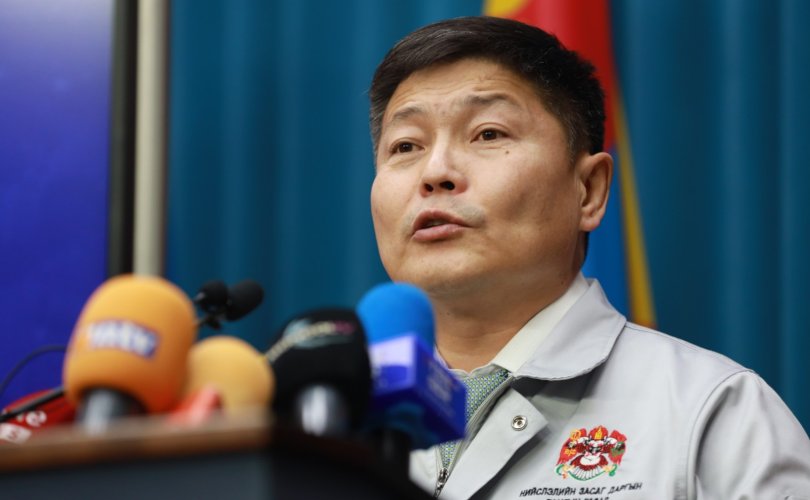
Kh.Nyambaatar: We will buy semi-coked coal from China by MNT 200 billion, package it and distribute www.gogo.mn
During a parliamentary session, Member of Parliament J.Zoljargal raised concerns about a plan to import semi-coked coal from China at a cost of MNT 226 billion. In response, Ulaanbaatar city Mayor Kh.Nyambaatar addressed the issue, clarifying the city's position and reasoning behind the decision.
“In recent years, many people have died due to suffocation caused by carbon monoxide poisoning,” Mayor Kh.Nyambaatar told reporters. “The National Committee has made a decision to introduce semi-coked coal into public consumption, believing it will have a positive impact on public health. I am simply implementing that decision.”
According to the Mayor, Mongolia currently lacks a plant to produce semi-coked coal domestically, which is why the product will be imported from China for approximately MNT 200 billion. Once imported, the coal will be packaged locally before being distributed for consumption.
MP J.Zoljargal, however, questioned the rationale behind the decision: “The Mayor has said that fuel will be imported and burned in Mongolia. A bid has already been announced. I was surprised that Mongolia is a coal-exporting country, yet we are planning to import processed coal from China. Why?”
He cited the official bid announcement, which reads: “Fuel made from semi-coke or blue coal will be purchased by MNT 226 billion. The general budget manager is the Governor of the Capital City. Dated 2025.06.10”.

Rio Tinto reaches $138.75 million settlement over Mongolian mine www.reuters.com
NEW YORK, June 18 (Reuters) - Rio Tinto (RIO.L), opens new tab, (RIO.AX), opens new tab agreed to pay $138.75 million to settle a lawsuit that accused the Anglo-Australian mining giant of defrauding investors by concealing problems with its $7 billion underground expansion of the Oyu Tolgoi copper and gold mine in Mongolia.
A preliminary settlement of the proposed class action was filed late on Wednesday with the U.S. District Court in Manhattan, and requires a judge's approval.
The lawsuit sought damages on behalf of shareholders of Montreal-based Turquoise Hill Resources between July 2018 and July 2019, when that company was majority-owned by Rio Tinto.
Shareholders were led by funds advised by Chicago-based Pentwater Capital Management.
The settlement also resolved claims against former Rio Tinto Chief Executive Jean-Sebastien Jacques, who stepped down in March 2021.
All defendants denied wrongdoing, but settled to eliminate the uncertainty, burden and cost of litigation, court papers show.
Rio Tinto and Pentwater declined to comment.
Turquoise Hill had been a single-asset company owning 66% of the Oyu Tolgoi mine, with Mongolia's government owning 34%.
Pentwater accused Rio Tinto and Turquoise Hill of fraudulently assuring that the Oyu Tolgoi mine was "on plan" and "on budget," even as it was falling up to 2-1/2 years behind schedule and running as much as $1.9 billion over budget.
In 2022, Rio Tinto bought the 49% of Turquoise Hill it didn't already own for $3.3 billion, fully integrating the mine into its copper portfolio.
The lawsuit stemmed partly from allegations by whistleblower Richard Bowley, who worked at the mine and claimed Rio Tinto knew about problems with the expansion before it publicly disclosed them.
Rio announced the possible $1.9 billion overrun in 2019, and projected total capital expenditures of $6.5 billion to $7.2 billion.
Lawyers for the shareholders plan to seek legal fees of up to 13% of the settlement amount, or about $18 million excluding interest, plus up to $2.6 million for expenses, court papers show.
The company, Hexagon, says AEON will start work later this year in live industrial settings, testing its ability to complement the workforce.
The case is In re Turquoise Hill Resources Ltd Securities Litigation, U.S. District Court, Southern District of New York, No. 20-08585.
Reporting by Clara Denina in London and Jonathan Stempel in New York; Editing by Leslie Adler and Sonali Paul
...
- «
- 1
- 2
- 3
- 4
- 5
- 6
- 7
- 8
- 9
- 10
- 11
- 12
- 13
- 14
- 15
- 16
- 17
- 18
- 19
- 20
- 21
- 22
- 23
- 24
- 25
- 26
- 27
- 28
- 29
- 30
- 31
- 32
- 33
- 34
- 35
- 36
- 37
- 38
- 39
- 40
- 41
- 42
- 43
- 44
- 45
- 46
- 47
- 48
- 49
- 50
- 51
- 52
- 53
- 54
- 55
- 56
- 57
- 58
- 59
- 60
- 61
- 62
- 63
- 64
- 65
- 66
- 67
- 68
- 69
- 70
- 71
- 72
- 73
- 74
- 75
- 76
- 77
- 78
- 79
- 80
- 81
- 82
- 83
- 84
- 85
- 86
- 87
- 88
- 89
- 90
- 91
- 92
- 93
- 94
- 95
- 96
- 97
- 98
- 99
- 100
- 101
- 102
- 103
- 104
- 105
- 106
- 107
- 108
- 109
- 110
- 111
- 112
- 113
- 114
- 115
- 116
- 117
- 118
- 119
- 120
- 121
- 122
- 123
- 124
- 125
- 126
- 127
- 128
- 129
- 130
- 131
- 132
- 133
- 134
- 135
- 136
- 137
- 138
- 139
- 140
- 141
- 142
- 143
- 144
- 145
- 146
- 147
- 148
- 149
- 150
- 151
- 152
- 153
- 154
- 155
- 156
- 157
- 158
- 159
- 160
- 161
- 162
- 163
- 164
- 165
- 166
- 167
- 168
- 169
- 170
- 171
- 172
- 173
- 174
- 175
- 176
- 177
- 178
- 179
- 180
- 181
- 182
- 183
- 184
- 185
- 186
- 187
- 188
- 189
- 190
- 191
- 192
- 193
- 194
- 195
- 196
- 197
- 198
- 199
- 200
- 201
- 202
- 203
- 204
- 205
- 206
- 207
- 208
- 209
- 210
- 211
- 212
- 213
- 214
- 215
- 216
- 217
- 218
- 219
- 220
- 221
- 222
- 223
- 224
- 225
- 226
- 227
- 228
- 229
- 230
- 231
- 232
- 233
- 234
- 235
- 236
- 237
- 238
- 239
- 240
- 241
- 242
- 243
- 244
- 245
- 246
- 247
- 248
- 249
- 250
- 251
- 252
- 253
- 254
- 255
- 256
- 257
- 258
- 259
- 260
- 261
- 262
- 263
- 264
- 265
- 266
- 267
- 268
- 269
- 270
- 271
- 272
- 273
- 274
- 275
- 276
- 277
- 278
- 279
- 280
- 281
- 282
- 283
- 284
- 285
- 286
- 287
- 288
- 289
- 290
- 291
- 292
- 293
- 294
- 295
- 296
- 297
- 298
- 299
- 300
- 301
- 302
- 303
- 304
- 305
- 306
- 307
- 308
- 309
- 310
- 311
- 312
- 313
- 314
- 315
- 316
- 317
- 318
- 319
- 320
- 321
- 322
- 323
- 324
- 325
- 326
- 327
- 328
- 329
- 330
- 331
- 332
- 333
- 334
- 335
- 336
- 337
- 338
- 339
- 340
- 341
- 342
- 343
- 344
- 345
- 346
- 347
- 348
- 349
- 350
- 351
- 352
- 353
- 354
- 355
- 356
- 357
- 358
- 359
- 360
- 361
- 362
- 363
- 364
- 365
- 366
- 367
- 368
- 369
- 370
- 371
- 372
- 373
- 374
- 375
- 376
- 377
- 378
- 379
- 380
- 381
- 382
- 383
- 384
- 385
- 386
- 387
- 388
- 389
- 390
- 391
- 392
- 393
- 394
- 395
- 396
- 397
- 398
- 399
- 400
- 401
- 402
- 403
- 404
- 405
- 406
- 407
- 408
- 409
- 410
- 411
- 412
- 413
- 414
- 415
- 416
- 417
- 418
- 419
- 420
- 421
- 422
- 423
- 424
- 425
- 426
- 427
- 428
- 429
- 430
- 431
- 432
- 433
- 434
- 435
- 436
- 437
- 438
- 439
- 440
- 441
- 442
- 443
- 444
- 445
- 446
- 447
- 448
- 449
- 450
- 451
- 452
- 453
- 454
- 455
- 456
- 457
- 458
- 459
- 460
- 461
- 462
- 463
- 464
- 465
- 466
- 467
- 468
- 469
- 470
- 471
- 472
- 473
- 474
- 475
- 476
- 477
- 478
- 479
- 480
- 481
- 482
- 483
- 484
- 485
- 486
- 487
- 488
- 489
- 490
- 491
- 492
- 493
- 494
- 495
- 496
- 497
- 498
- 499
- 500
- 501
- 502
- 503
- 504
- 505
- 506
- 507
- 508
- 509
- 510
- 511
- 512
- 513
- 514
- 515
- 516
- 517
- 518
- 519
- 520
- 521
- 522
- 523
- 524
- 525
- 526
- 527
- 528
- 529
- 530
- 531
- 532
- 533
- 534
- 535
- 536
- 537
- 538
- 539
- 540
- 541
- 542
- 543
- 544
- 545
- 546
- 547
- 548
- 549
- 550
- 551
- 552
- 553
- 554
- 555
- 556
- 557
- 558
- 559
- 560
- 561
- 562
- 563
- 564
- 565
- 566
- 567
- 568
- 569
- 570
- 571
- 572
- 573
- 574
- 575
- 576
- 577
- 578
- 579
- 580
- 581
- 582
- 583
- 584
- 585
- 586
- 587
- 588
- 589
- 590
- 591
- 592
- 593
- 594
- 595
- 596
- 597
- 598
- 599
- 600
- 601
- 602
- 603
- 604
- 605
- 606
- 607
- 608
- 609
- 610
- 611
- 612
- 613
- 614
- 615
- 616
- 617
- 618
- 619
- 620
- 621
- 622
- 623
- 624
- 625
- 626
- 627
- 628
- 629
- 630
- 631
- 632
- 633
- 634
- 635
- 636
- 637
- 638
- 639
- 640
- 641
- 642
- 643
- 644
- 645
- 646
- 647
- 648
- 649
- 650
- 651
- 652
- 653
- 654
- 655
- 656
- 657
- 658
- 659
- 660
- 661
- 662
- 663
- 664
- 665
- 666
- 667
- 668
- 669
- 670
- 671
- 672
- 673
- 674
- 675
- 676
- 677
- 678
- 679
- 680
- 681
- 682
- 683
- 684
- 685
- 686
- 687
- 688
- 689
- 690
- 691
- 692
- 693
- 694
- 695
- 696
- 697
- 698
- 699
- 700
- 701
- 702
- 703
- 704
- 705
- 706
- 707
- 708
- 709
- 710
- 711
- 712
- 713
- 714
- 715
- 716
- 717
- 718
- 719
- 720
- 721
- 722
- 723
- 724
- 725
- 726
- 727
- 728
- 729
- 730
- 731
- 732
- 733
- 734
- 735
- 736
- 737
- 738
- 739
- 740
- 741
- 742
- 743
- 744
- 745
- 746
- 747
- 748
- 749
- 750
- 751
- 752
- 753
- 754
- 755
- 756
- 757
- 758
- 759
- 760
- 761
- 762
- 763
- 764
- 765
- 766
- 767
- 768
- 769
- 770
- 771
- 772
- 773
- 774
- 775
- 776
- 777
- 778
- 779
- 780
- 781
- 782
- 783
- 784
- 785
- 786
- 787
- 788
- 789
- 790
- 791
- 792
- 793
- 794
- 795
- 796
- 797
- 798
- 799
- 800
- 801
- 802
- 803
- 804
- 805
- 806
- 807
- 808
- 809
- 810
- 811
- 812
- 813
- 814
- 815
- 816
- 817
- 818
- 819
- 820
- 821
- 822
- 823
- 824
- 825
- 826
- 827
- 828
- 829
- 830
- 831
- 832
- 833
- 834
- 835
- 836
- 837
- 838
- 839
- 840
- 841
- 842
- 843
- 844
- 845
- 846
- 847
- 848
- 849
- 850
- 851
- 852
- 853
- 854
- 855
- 856
- 857
- 858
- 859
- 860
- 861
- 862
- 863
- 864
- 865
- 866
- 867
- 868
- 869
- 870
- 871
- 872
- 873
- 874
- 875
- 876
- 877
- 878
- 879
- 880
- 881
- 882
- 883
- 884
- 885
- 886
- 887
- 888
- 889
- 890
- 891
- 892
- 893
- 894
- 895
- 896
- 897
- 898
- 899
- 900
- 901
- 902
- 903
- 904
- 905
- 906
- 907
- 908
- 909
- 910
- 911
- 912
- 913
- 914
- 915
- 916
- 917
- 918
- 919
- 920
- 921
- 922
- 923
- 924
- 925
- 926
- 927
- 928
- 929
- 930
- 931
- 932
- 933
- 934
- 935
- 936
- 937
- 938
- 939
- 940
- 941
- 942
- 943
- 944
- 945
- 946
- 947
- 948
- 949
- 950
- 951
- 952
- 953
- 954
- 955
- 956
- 957
- 958
- 959
- 960
- 961
- 962
- 963
- 964
- 965
- 966
- 967
- 968
- 969
- 970
- 971
- 972
- 973
- 974
- 975
- 976
- 977
- 978
- 979
- 980
- 981
- 982
- 983
- 984
- 985
- 986
- 987
- 988
- 989
- 990
- 991
- 992
- 993
- 994
- 995
- 996
- 997
- 998
- 999
- 1000
- 1001
- 1002
- 1003
- 1004
- 1005
- 1006
- 1007
- 1008
- 1009
- 1010
- 1011
- 1012
- 1013
- 1014
- 1015
- 1016
- 1017
- 1018
- 1019
- 1020
- 1021
- 1022
- 1023
- 1024
- 1025
- 1026
- 1027
- 1028
- 1029
- 1030
- 1031
- 1032
- 1033
- 1034
- 1035
- 1036
- 1037
- 1038
- 1039
- 1040
- 1041
- 1042
- 1043
- 1044
- 1045
- 1046
- 1047
- 1048
- 1049
- 1050
- 1051
- 1052
- 1053
- 1054
- 1055
- 1056
- 1057
- 1058
- 1059
- 1060
- 1061
- 1062
- 1063
- 1064
- 1065
- 1066
- 1067
- 1068
- 1069
- 1070
- 1071
- 1072
- 1073
- 1074
- 1075
- 1076
- 1077
- 1078
- 1079
- 1080
- 1081
- 1082
- 1083
- 1084
- 1085
- 1086
- 1087
- 1088
- 1089
- 1090
- 1091
- 1092
- 1093
- 1094
- 1095
- 1096
- 1097
- 1098
- 1099
- 1100
- 1101
- 1102
- 1103
- 1104
- 1105
- 1106
- 1107
- 1108
- 1109
- 1110
- 1111
- 1112
- 1113
- 1114
- 1115
- 1116
- 1117
- 1118
- 1119
- 1120
- 1121
- 1122
- 1123
- 1124
- 1125
- 1126
- 1127
- 1128
- 1129
- 1130
- 1131
- 1132
- 1133
- 1134
- 1135
- 1136
- 1137
- 1138
- 1139
- 1140
- 1141
- 1142
- 1143
- 1144
- 1145
- 1146
- 1147
- 1148
- 1149
- 1150
- 1151
- 1152
- 1153
- 1154
- 1155
- 1156
- 1157
- 1158
- 1159
- 1160
- 1161
- 1162
- 1163
- 1164
- 1165
- 1166
- 1167
- 1168
- 1169
- 1170
- 1171
- 1172
- 1173
- 1174
- 1175
- 1176
- 1177
- 1178
- 1179
- 1180
- 1181
- 1182
- 1183
- 1184
- 1185
- 1186
- 1187
- 1188
- 1189
- 1190
- 1191
- 1192
- 1193
- 1194
- 1195
- 1196
- 1197
- 1198
- 1199
- 1200
- 1201
- 1202
- 1203
- 1204
- 1205
- 1206
- 1207
- 1208
- 1209
- 1210
- 1211
- 1212
- 1213
- 1214
- 1215
- 1216
- 1217
- 1218
- 1219
- 1220
- 1221
- 1222
- 1223
- 1224
- 1225
- 1226
- 1227
- 1228
- 1229
- 1230
- 1231
- 1232
- 1233
- 1234
- 1235
- 1236
- 1237
- 1238
- 1239
- 1240
- 1241
- 1242
- 1243
- 1244
- 1245
- 1246
- 1247
- 1248
- 1249
- 1250
- 1251
- 1252
- 1253
- 1254
- 1255
- 1256
- 1257
- 1258
- 1259
- 1260
- 1261
- 1262
- 1263
- 1264
- 1265
- 1266
- 1267
- 1268
- 1269
- 1270
- 1271
- 1272
- 1273
- 1274
- 1275
- 1276
- 1277
- 1278
- 1279
- 1280
- 1281
- 1282
- 1283
- 1284
- 1285
- 1286
- 1287
- 1288
- 1289
- 1290
- 1291
- 1292
- 1293
- 1294
- 1295
- 1296
- 1297
- 1298
- 1299
- 1300
- 1301
- 1302
- 1303
- 1304
- 1305
- 1306
- 1307
- 1308
- 1309
- 1310
- 1311
- 1312
- 1313
- 1314
- 1315
- 1316
- 1317
- 1318
- 1319
- 1320
- 1321
- 1322
- 1323
- 1324
- 1325
- 1326
- 1327
- 1328
- 1329
- 1330
- 1331
- 1332
- 1333
- 1334
- 1335
- 1336
- 1337
- 1338
- 1339
- 1340
- 1341
- 1342
- 1343
- 1344
- 1345
- 1346
- 1347
- 1348
- 1349
- 1350
- 1351
- 1352
- 1353
- 1354
- 1355
- 1356
- 1357
- 1358
- 1359
- 1360
- 1361
- 1362
- 1363
- 1364
- 1365
- 1366
- 1367
- 1368
- 1369
- 1370
- 1371
- 1372
- 1373
- 1374
- 1375
- 1376
- 1377
- 1378
- 1379
- 1380
- 1381
- 1382
- 1383
- 1384
- 1385
- 1386
- 1387
- 1388
- 1389
- 1390
- 1391
- 1392
- 1393
- 1394
- 1395
- 1396
- 1397
- 1398
- 1399
- 1400
- 1401
- 1402
- 1403
- 1404
- 1405
- 1406
- 1407
- 1408
- 1409
- 1410
- 1411
- 1412
- 1413
- 1414
- 1415
- 1416
- 1417
- 1418
- 1419
- 1420
- 1421
- 1422
- 1423
- 1424
- 1425
- 1426
- 1427
- 1428
- 1429
- 1430
- 1431
- 1432
- 1433
- 1434
- 1435
- 1436
- 1437
- 1438
- 1439
- 1440
- 1441
- 1442
- 1443
- 1444
- 1445
- 1446
- 1447
- 1448
- 1449
- 1450
- 1451
- 1452
- 1453
- 1454
- 1455
- 1456
- 1457
- 1458
- 1459
- 1460
- 1461
- 1462
- 1463
- 1464
- 1465
- 1466
- 1467
- 1468
- 1469
- 1470
- 1471
- 1472
- 1473
- 1474
- 1475
- 1476
- 1477
- 1478
- 1479
- 1480
- 1481
- 1482
- 1483
- 1484
- 1485
- 1486
- 1487
- 1488
- 1489
- 1490
- 1491
- 1492
- 1493
- 1494
- 1495
- 1496
- 1497
- 1498
- 1499
- 1500
- 1501
- 1502
- 1503
- 1504
- 1505
- 1506
- 1507
- 1508
- 1509
- 1510
- 1511
- 1512
- 1513
- 1514
- 1515
- 1516
- 1517
- 1518
- 1519
- 1520
- 1521
- 1522
- 1523
- 1524
- 1525
- 1526
- 1527
- 1528
- 1529
- 1530
- 1531
- 1532
- 1533
- 1534
- 1535
- 1536
- 1537
- 1538
- 1539
- 1540
- 1541
- 1542
- 1543
- 1544
- 1545
- 1546
- 1547
- 1548
- 1549
- 1550
- 1551
- 1552
- 1553
- 1554
- 1555
- 1556
- 1557
- 1558
- 1559
- 1560
- 1561
- 1562
- 1563
- 1564
- 1565
- 1566
- 1567
- 1568
- 1569
- 1570
- 1571
- 1572
- 1573
- 1574
- 1575
- 1576
- 1577
- 1578
- 1579
- 1580
- 1581
- 1582
- 1583
- 1584
- 1585
- 1586
- 1587
- 1588
- 1589
- 1590
- 1591
- 1592
- 1593
- 1594
- 1595
- 1596
- 1597
- 1598
- 1599
- 1600
- 1601
- 1602
- 1603
- 1604
- 1605
- 1606
- 1607
- 1608
- 1609
- 1610
- 1611
- 1612
- 1613
- 1614
- 1615
- 1616
- 1617
- 1618
- 1619
- 1620
- 1621
- 1622
- 1623
- 1624
- 1625
- 1626
- 1627
- 1628
- 1629
- 1630
- 1631
- 1632
- 1633
- 1634
- 1635
- 1636
- 1637
- 1638
- 1639
- 1640
- 1641
- 1642
- 1643
- 1644
- 1645
- 1646
- 1647
- 1648
- 1649
- 1650
- 1651
- 1652
- 1653
- 1654
- 1655
- 1656
- 1657
- 1658
- 1659
- 1660
- 1661
- 1662
- 1663
- 1664
- 1665
- 1666
- 1667
- 1668
- 1669
- 1670
- 1671
- 1672
- 1673
- 1674
- 1675
- 1676
- 1677
- 1678
- 1679
- 1680
- 1681
- 1682
- 1683
- 1684
- 1685
- 1686
- 1687
- 1688
- 1689
- 1690
- 1691
- 1692
- 1693
- 1694
- 1695
- 1696
- 1697
- 1698
- 1699
- 1700
- 1701
- 1702
- 1703
- 1704
- 1705
- 1706
- 1707
- 1708
- 1709
- 1710
- 1711
- 1712
- 1713
- 1714
- 1715
- 1716
- 1717
- 1718
- 1719
- 1720
- 1721
- 1722
- 1723
- 1724
- »






